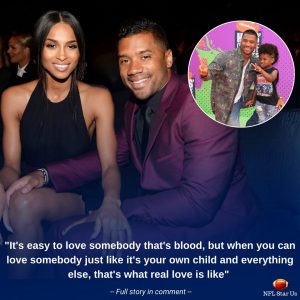Mary J. Blige is widely regarded as the “Queen of Hip Hop Soul” for her pioneering work blending hip hop, R&B, and soul music. Over her 30-year career, Blige has won 9 Grammys, sold over 80 million records worldwide, and influenced countless artists across multiple genres.

While she is best known for speaking to the experiences of black women through her music, Blige’s impact transcends gender through her raw emotion, powerful storytelling, and themes of resilience that resonate universally.
Blige was born in 1971 in Bronx, New York and grew up in a difficult home environment. She experienced poverty, domestic violence, and dysfunction from a young age. These hardships shaped Blige and fueled her desire to use her voice to empower others facing adversity. At just 18 years old, she was discovered by Sean “Puffy” Combs and signed to his label Uptown Records. In 1992, Blige released her debut album What’s the 411?, featuring hit singles “You Remind Me” and “Real Love.” The album was a commercial success and cemented Blige as a leader in the new genre of hip hop soul.
What’s the 411? established many of the hallmarks that would define Blige’s iconic sound and artistry. Her vocals were raw and soulful yet complemented by hip hop-influenced beats. Lyrically, she addressed issues like dysfunctional relationships, heartbreak, insecurity, and survival – themes that resonated deeply with black women but also anyone struggling with similar life challenges. While the album focused on female experiences, Blige’s emotional delivery and honesty in her storytelling gave the music a universality that transcended gender.
Over the next three decades, Blige would continue exploring these themes across 12 acclaimed studio albums. Each release showed her growth as an artist while maintaining the authenticity and power in her voice that first captivated audiences. 1995’s My Life was a career-defining work that cemented Blige as more than just an R&B singer – she was an artist using her platform to give voice to a community. The vulnerable and introspective album addressed issues like depression, drug abuse, and domestic violence.
My Life demonstrated that while Blige’s music often centered black female narratives, its ability to speak candidly about mental health, addiction, and toxic relationships made it universally relatable. The raw emotion in songs like “Not Gon’ Cry” and “You Bring Me Joy” resonated deeply with anyone struggling with inner demons or unhealthy relationships. My Life has gone on to be considered one of the greatest R&B albums of all time due to its impact, influence on the genre, and ability to transcend demographics with its themes of resilience.
In the late 90s and 2000s, Blige continued expanding her sound and pushing creative boundaries. 1997’s Share My World incorporated more rock and alternative influences while 2001’s No More Drama blended hip hop, soul, dance, and pop seamlessly. Across these albums, Blige tackled issues like toxic relationships (“No More Drama”), heartbreak (“Give Me You”), self-empowerment (“Family Affair”), and overcoming adversity (“I Can Love You”). Her evolution as an artist was matched by her growth as a vocal powerhouse, capable of channeling raw anguish or joyful celebration with equal conviction.
Lyrically, Blige offered candid insights into the black female experience but from a place of such emotional authenticity that her narratives resonated far beyond any single demographic. While her music often centered on themes deeply connected to black culture like survival, community, and navigating racism/𝓈ℯ𝓍ism, Blige framed these experiences through prisms of love, pain, and resilience that anyone could relate to. She became a voice not just for black women, but for marginalized groups and individuals everywhere facing struggles to find their worth or heal from trauma.
Nowhere is Blige’s ability to create universally impactful music more evident than in some of her most iconic songs. While each track emerged from her own life experiences as a black woman, their emotional storytelling, lyrical themes, and soulful delivery have given them resonance across gender, race and background. Here’s a closer look at 6 must-listen Mary J. Blige songs that exemplify her crossover appeal:
“Real Love” (feat. Drake)Released in 1992, “Real Love” was one of Blige’s earliest hits and set the template for her signature hip hop soul sound. Over a smooth R&B beat, Blige’s powerful yet vulnerable vocals deliver a message about the complexities of love and search for genuine human connection. These themes ring as true today as they did 30 years ago.
Drake’s rap verse, added for the song’s 2016 remix, brings fresh perspective while maintaining the original’s emotional core. Together their styles complement each other in exploring love’s difficulties and triumphs. The result is a timeless soulful ballad about longing, heartbreak, and perseverance in relationships – universal experiences that resonate across gender, culture and generation.
“Be Without You”Off 2001’s No More Drama, “Be Without You” is often cited as Blige’s magnum opus. Over sparse instrumentation, she channels raw anguish at losing a loved one with vocal acrobatics that bring listeners to tears. The emotion is so visceral one can feel her pain. While coming from a place of black female experience, the song transcends through its ability to empathize with anyone coping with grief and absence.
Its lyrics speak to the universal human experiences of deep loss, memories that haunt us, and learning to carry on. Almost two decades later, “Be Without You” remains a staple at memorials due to its cathartic ability to soothe those processing heartbreak and death. Few songs from any genre can claim to move audiences of all backgrounds to such depths.
“Just Fine”A feel-good single from 2007’s Growing Pains, “Just Fine” is an upbeat anthem about self-love and independence. Over a catchy melody, Blige confidently declares she doesn’t need a man and affirms her own worth. Her vocals exude positivity and resilience as she refuses to let setbacks diminish her light.
The message resonates across gender – anyone can relate to the struggle to stand on their own or shake off a toxic situation. Blige’s empowering delivery makes the song a joy to listen to, getting you dancing and reminding yourself that you are “just fine” regardless what life throws your way. Its universal themes of strength, self-care, and refusing to be diminished still feel fresh and inspiring today.
“No More Drama”Off 2001’s multi-platinum No More Drama, this sassy single is a declaration of independence from negativity and unhealthy relationships. Over a driving beat, Blige boldly asserts she’s cutting ties with drama and moving forward on her terms. Her powerful vocals and the song’s defiant energy make it an anthem of self-respect that men and women alike can relate to.
We’ve all likely known someone (or been there ourselves) clinging to toxicity out of habit, low self-esteem or codependency. “No More Drama” captures the catharsis of breaking free from that cycle with such conviction that anyone can feel empowered hitting repeat. Its message of choosing healthy boundaries and refusing to compromise one’s well-being is universal.
“I’m Goin’ Down”From 1995’s iconic My Life, “I’m Goin’ Down” is a soul-baring track about hitting rock bottom and the inner fight to rise above adversity. Over a sparse piano, Blige lays her struggles bare with raw vulnerability. Her vocal runs express anguish, pain, resilience and everything in between with stunning emotional acuity.
While coming from a place of black female experience, the song speaks to anyone navigating darkness, depression, trauma or life’s difficulties. Its themes of darkness, redemption and refusing to stay down still resonate as powerfully today. Like the best art, “I’m Goin’ Down” uses specific experience to achieve universal catharsis and hope – reminding all listeners that they too can overcome whatever tries to diminish their light.
“Family Affair”A funky lead single from 2001’s No More Drama, “Family Affair” is an infectious celebration of found family and community. Over a bass-driven beat, Blige joyfully declares she’s surrounded by people who love her for who she is – “blood really ain’t thicker than water.” Her charismatic delivery is matched by the song’s feel-good energy.
While centering the black experience, the track speaks to chosen family as a universal concept. We’ve all likely relied on friends or found community outside blood ties. Its message of embracing one’s people, dancing through life’s ups and downs together, and prioritizing quality over biology gives “Family Affair” crossover resonance. The song remains a party staple two decades later due to its ability to bring diverse listeners together in celebration.
In Summary
Through over three decades in music, Mary J. Blige has cemented herself not just as the “Queen of Hip Hop Soul” but as one of the most influential artists of our time across all genres.






